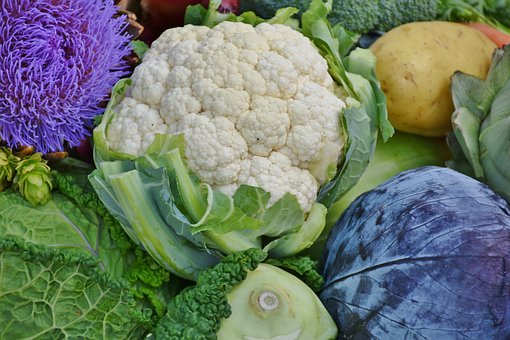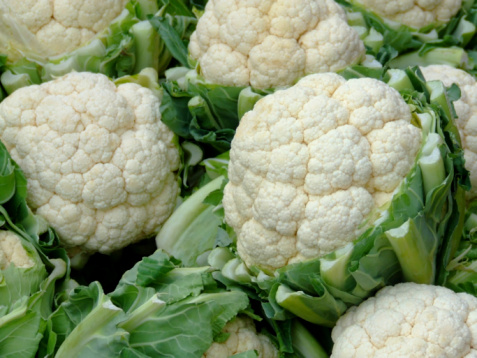Cauliflower is a versatile and nutritious vegetable that is a great addition to any diet. It is a member of the cruciferous family, which also includes broccoli, cabbage, and Brussels sprouts. Cauliflower has a mild, nutty flavor and a dense, crunchy texture that makes it a great alternative to starchy foods such as potatoes and rice.
One of the key nutritional benefits of cauliflower is its high vitamin and mineral content. It is an excellent source of vitamin C, which is essential for maintaining a healthy immune system and promoting collagen production. Just one cup of raw cauliflower contains nearly 77% of the recommended daily intake of vitamin C. It also contains smaller amounts of other vitamins and minerals, including vitamin K, vitamin B6, folate, potassium, and manganese.
Cauliflower is also high in antioxidants, which help to protect cells from damage caused by free radicals. Free radicals are unstable molecules that can damage cells and contribute to the development of chronic diseases such as cancer and heart disease. The antioxidants in cauliflower, including beta-carotene and carotenoids, can help to neutralize these harmful molecules and reduce the risk of disease.
Another benefit of cauliflower is that it is low in calories and high in fiber. One cup of raw cauliflower contains just 29 calories and 2 grams of fiber. Fiber is important for maintaining a healthy digestive system and can help to lower cholesterol levels and blood sugar. Additionally, fiber helps you stay full for a longer period, which can aid in weight loss.
Cauliflower also contains compounds called glucosinolates, which have been shown to have anti-inflammatory and anti-cancer properties. Glucosinolates are converted into isothiocyanates when cauliflower is chopped or chewed, which can help to inhibit the growth of cancer cells. Studies have shown that people who eat more cruciferous vegetables, such as cauliflower, have a lower risk of developing certain types of cancer, including lung, colon, and breast cancer.
However, it is worth noting that cooking cauliflower reduces glucosinolate content, thus boiling is the method that causes the highest glucosinolate loss. Raw cauliflower, or gently steaming or roasting it to preserve the nutrient value.
Cauliflower is also versatile in the kitchen, it can be roasted, mashed, steamed, or eaten raw, making it a great ingredient to add to a variety of dishes. You can add it to salads, soups, and stews, use it as a low-carb alternative to pizza crust, or puree it to make cauliflower rice or cauliflower mash.
In conclusion, cauliflower is a healthy and nutritious vegetable that is packed with vitamins, minerals, antioxidants, and fiber. It is low in calories and can be easily incorporated into a variety of dishes. Additionally, its anti-inflammatory and anti-cancer properties make it a great vegetable to include in a healthy diet. Next time you are looking for a healthy food option, consider adding cauliflower to your meal plan.

 Home
Home Health
Health Diet & Nutrition
Diet & Nutrition Living Well
Living Well More
More












